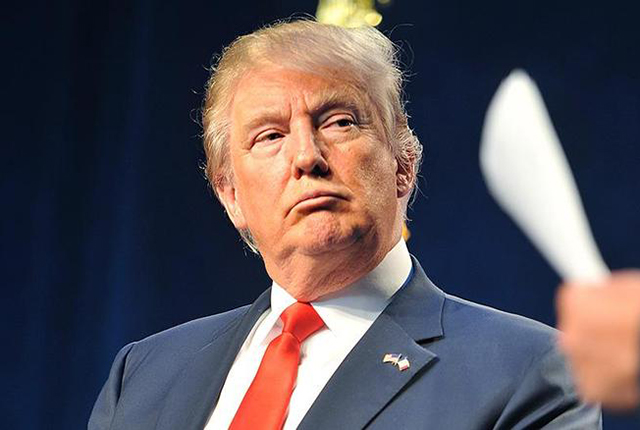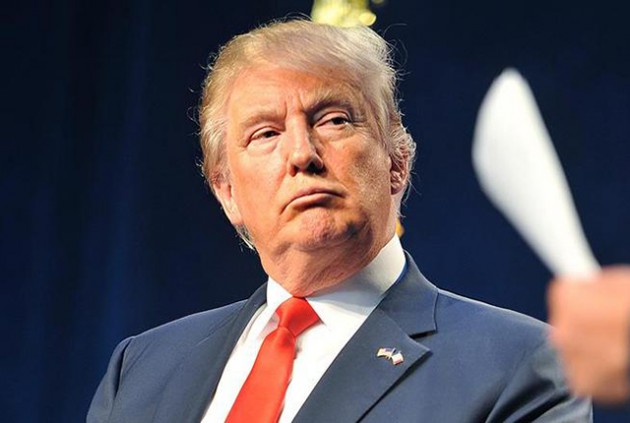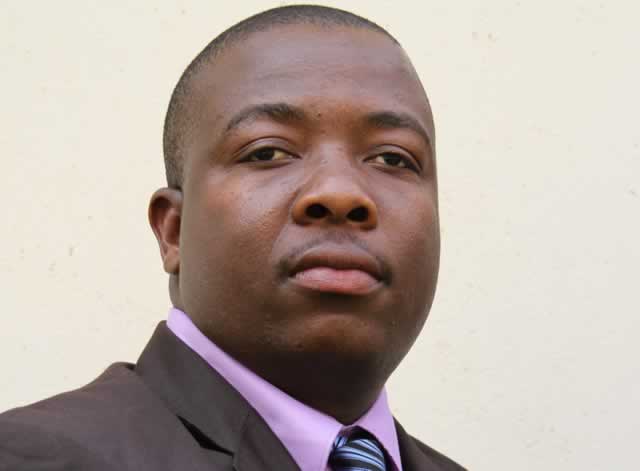Power politics: Foundation of US foreign policy


Donald Trump
Reason Wafawarova on Monday
The bedighting of democracy in power politics is a direct indication of the inter-link between the domestic and foreign policy of the United States.
Americans just voted for the sectionally popular idea of making “America Great Again,” but they seem deeply divided over the man a minority of voters managed to push into the White House via a technical majority of the electoral college vote.
The loser in the 2016 election was Hillary Clinton, who walked away empty-handed with a 3 million ballot lead of the popular vote, however, losing the electoral college vote by 74 votes. It’s a system as weird as the idea of American greatness — founded on building walls against all other nations.
Just like Barack Obama manipulated public opinion by what was portrayed as his heroic killing of Osama bin Laden on May 2, 2011, Donald Trump managed to capture a strategic minority vote by posturing as a gallant nationalist committed to revive American supremacy over all others. It worked.
Not even the mainstream media’s committed opposition could stop the populist and anti-establishment Trump, hard as they did try.
Barack Obama did not do anything dramatic enough to warrant his succession by a fellow Democrat. He needed Osama’s death to keep people’s focus away from his lukewarm show in the running of US affairs, and to get himself elected for a second term. The “Yes We Can” slogan turned out to be an insult to people’s massive expectations as soon as Obama assumed office.
Without the help of the mainstream media, Trump managed to single-handedly execute the tradition of instilling fear in the populace — reiterating vociferously the unwanted threat of “murderous” Muslims and “criminal” immigrants. He whipped up jingoistic emotions by rallying Americans against the Great Satan from the Middle East, and the evil criminals of Hispanic background. These people were portrayed in the election campaign as committed to destroying the “goodness” of America, whatever that means.
Trump is now the United States president, and he has started off by signing up a number of dramatic executive orders, including banning refugees from Islamic countries, and of course erecting a “beautiful” wall alongside the US-Mexico border. He has not made his isolationist intentions any secret, pulling out of the TPP Agreement as soon as he assumed office, and also threatening a whole range of protectionist economic policies.
Robert Brenner explained a bit about the chauvinism often shown by many of US presidents; among whom Trump is an easy count.
In the journal “Why Bush went to war,” Robert Brenner wrote:
“The American State is obsessed with building up and projecting military-political power, because power, and its expression, is available to it in no other manner or form. The US State builds its military strength, in a way, to compensate for its loss of economic power — even though so doing will undoubtedly contribute to further relative economic decline and, in the end, political-military power disintegration.”
Trump knows it is too late to assert economic power over China, but he hopes his circumstantial alliance with Russia’s Putin could in some way help him escalate and win the economic war with the rising China. He has also taken good advantage of the deteriorating relations between China and India; making a personal call to the Indian Prime Minister and inviting him to the White House for a state visit.
We are already seeing an attempt at the use of naked bully power through the ludicrous Trump claim that Mexico is going to reimburse the United States for Trump’s border wall.
Trump will recast the defeat of the United States in Libya and Syria as non-events, and he will make America “great again” by contriving victory over a diminishing ISIS — itself a creation of the United States. He himself has been vociferously against the creation of ISIS, and he must be credited for that principled stance.
We are likely to see more hostility against Iran, more threats of war, and possibly more acts of aggression. The game plan is to assert the United States as the indomitable player in world politics, and Trump is likely to wage a simultaneous war militarily and economically. The Palestinians have grave reasons for worry.
Syria has refused to fall, and Trump will hijack its victory over ISIS and portray it as American-backed. The days of cheap military victories are fast running out for “Great America.” It used to be easy for Reagan with his invasions of tiny countries like Grenada, or in the older days when the United States easily invaded countries like Laos.
Trump wants to reinvent US foreign policy on the foundation of power politics. He has tremendous opposition from within the US political community. The man comes across as a rogue character, and he does not have that many friends from the elites either. His political bluntness has not been acceptable to the US mainstream media, and generally the establishment has very little hope in Trump’s jingoistic politics. Not even the deadly CIA is impressed. Even the Satanists are marching against Trump.
After the dismal US failure in Syria there are virtually no military options for Trump in regards to the rivalry between the United States and China. The United States cannot even afford any military options for lightweights like North Korea or Iran, and it is unthinkable that Trump will do much in asserting US military influence globally. That is why he believes the most effective way of sending a message of US relevance in international affairs is to make life hard for US allies in NATO membership.
If these allies fill the absence of the US in NATO interventions then America will feel missed, and Trump will interpret that to mean reviving American greatness.
While Trump could easily be foolhardy to try military action against China, those who run Pentagon are unlikely to give him way in that direction. Traditionally, the United States is scared of countries that can defend themselves. Rather the declining empire has a reputation for fabricating petty excuses and pretexts for invading small defenceless countries like Grenada, Libya, Iraq, Afghanistan, Laos and so on.
America can afford the drama of sending 12 000 special troopers to a defenceless Grenada, or 200 000 troopers to a non-retaliating Iraq, and so on and so forth. Grenada did not even have an army when Reagan invaded it in 1983; only a handful of police officers.

Barack Obama
After Barrack Obama and Hillary Clinton were shown watching the Hollywood style killing of Osama bin Laden via a satellite link, the show of power and supremacy was good enough for Obama to launch his campaign for a second term. From the lounge where they were watching the dramatic killing, Obama walked magnificently under the cover of huge cameras to the White House East Room podium.
He said:
“Tonight, I can report to the American people and to the world that the United States has conducted an operation that killed Osama bin Laden, the leader of al Qaeda, and a terrorist who’s responsible for the murder of thousands of innocent men, women, and children.”
The beaming of the statement was phenomenal. The declining Obama, at 46 percent approval ratings at the time, suddenly found himself being watched by a record 56,5 million live viewers on nine networks, with his approval ratings shooting to 57 percent the following day.
The setback caused by the combusting economy after the Osama death did not do much good to the Obama legacy, and it was the folding manufacturing companies that Trump capitalised on to promise desperate Americans a resurgence of American greatness.
Obama did not do much to distinguish himself from George W. Bush in regards to inclination towards war. His critics said he was an arrogant man, solitary and more of an oratory showman than an administrator. Some even accuse him of violating other people’s rights the same way Bush did before him.
After killing Osama, Obama turned himself into a perfect leader for a country at war. It’s an image that would work well for any incumbent US president.
The oration genius was at his unctuous best stealing the 9/11 imagery from the Bush legacy. Wearing a grief stricken face, Obama opined:
“And yet we know that the worst images are those that were unseen to the world. The empty seat at the dinner table. Children who were forced to grow up without their mother or their father. Parents who would never know the feeling of their child’s embrace. Nearly 3 000 citizens taken from us, leaving a gaping hole in our hearts . . .”
Of course the world must not worry much about empty dinner seats for Afghani and Iraqi families, must not be concerned about the millions of orphans in these war-devastated countries, or worry about Libyan parents who lost their children to US/French firepower — the world must not worry an inch about the millions of innocent civilians who die in Afghanistan, Syria, Libya and Iraq because of US initiated and led wars.
Just like in the sermons of Osama, Obama ended his speech on an appealing religious note:
“Let us remember that we can do these things not just because of wealth or power, but because of who we are: ‘one nation under God, indivisible, with liberty and justice for all.’ Thank you. May God bless you. And may God bless the United States of America.”
Obama is known as the “Smiling Murderer” in Afghani villages. He commanded the numerous drone killings in these villages, as well as in remote parts of Pakistan.
We got this triumphant message about the heroic killing of Muammar Gaddafi in cold blood, and the message the lesser people were supposed to get was that the American red line cannot be crossed, that no one has the right to pursue nationalist interests without regard to the American interest. We must understand that Americans can invade and kill whomever they choose if they may so wish at any given time.
Obama must have been relieved to see cheering crowds in Washington DC and New York. Bizarrely, the Pakistan Prime Minister queued on the White House phone alongside European leaders and some leaders from the developing world, profusely offering heartfelt congratulations.
Suddenly Obama was a darling even to the liberals, most of whom fell over each other gushing over the technical aspects of the great triumph, particularly so impressed by the wondrous performance of the Navy Seals.
Such heroic military acts make up the idea of American greatness. America has never been known to be great because of peace. It has always been known to be a great warring country — a war-mongering giant nation with a bloody appetite for human lives.
Professor Gary Wills, who before the Osama killing used to be a known public critic of Obama’s record on civil liberties, was instantly converted to an Obama praise singer.
He energetically lectured that Obama was not “flaccid or feckless on national defence and military action,” as alleged by his Republican opponents, and therefore, it was crucial that, while admiring the “superb things done by our Navy Seals…we should keep somewhere in the back of our minds a remembrance that the one ultimately pulling the trigger in both Seal actions was the President of the United States.”
For sure it was the United States president that ultimately bombed down Gaddafi’s motorcade before getting him callously murdered by US armed Libyan rebels in gross violation of international law.
Trump is hankering for such kind of greatness. He is obsessed with the idea of American greatness at the expense of all others.
Of course Trump is opposed to the Libyan invasion, but that does not mean he has no military targets of his own, and no similar intentions of dominance.
Reason Wafawarova is a political writer based in SYDNEY, Australia.










Comments